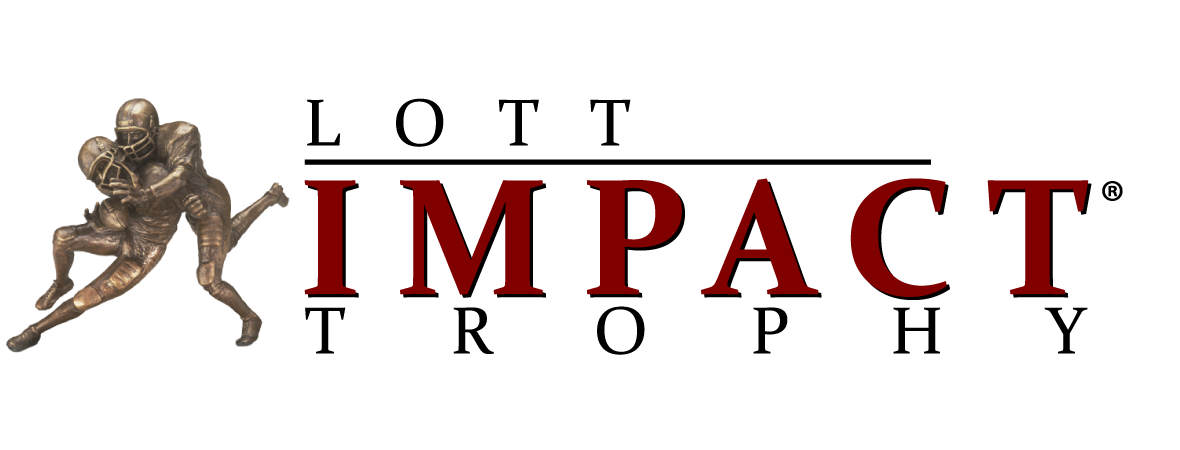By Pete Donovan, The Lott IMPACT Trophy
The 2020 college football season in 2020 was like no other. With the pandemic randomly flying around the nation schedules and practices were left in chaos. Teams from different conferences played games that seemed to be scheduled almost randomly. A total of 118 games were cancelled or postponed. We had never seen anything like it – and are hoping we never will again.
It looks like 2021 will return to normal – at least as far as playing the games – but there is nothing normal about 2021 either. The advent of two significant occurrences have altered college football’s landscape dramatically.
The first is the decision of conference re-alignment. Traditional powerhouses Texas and Oklahoma announced they would leave their home in the Big-12 and join the mega conference SEC, which already features the likes of Alabama, LSU, Georgia, Auburn and Florida. This will lead to much shuffling around the nation. What happens to the Big-12, which still has some pretty good teams like Iowa State and Oklahoma State? What will the Pac-12, the Big Ten and the ACC do in response? Can Notre Dame now pick any landing spot it wants. Maybe BYU, too. Both are currently independent free agents.
The second, the college football student-athlete is now the college football businessman-athlete. Free to negotiate contracts for his (or her) Names, Likeness or Image (commonly referred to as NIL). What now? Will businesses now be an even more prominent part of recruiting, offering high school stars “jobs” when they decide to attend good ol’ Alumni U.?
Time, of course, will tell, but it’s clear, it’s a whole new ballgame, just as these other times were:
1945: Michigan under coach Fritz Crisler introduced the two-platoon system in a game against Army. Prior to that time, players were on the field for all 60 minutes (excepting, of course, injuries. Army was coached by Earl Blaik, who coined the term “platoon” – after Army squads.
1954: Colleges went back to the one-platoon system, citing the need for players to be “real men” and play the entire game.
1958: Paul Dietzel of LSU introduced a three-platoon system, a white team (first team offense and defense), a gold team (second team offense) and third team, Nicknamed the “Chinese Bandits,” a second team defense. He avoided the platoon system by inserting entirely different teams during the game.
1964: Two platoons were back and special teams were added

